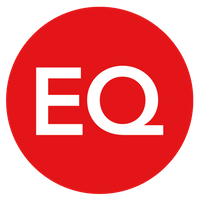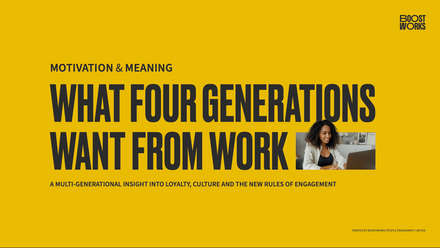Why reward and recognition equals value to your people and your bottom line

Reward and recognition often goes by another name where the technology to support it is concerned, namely employee engagement and feedback software. A 2020 US market research report predicts this market is expected to be worth $2.13bn by 2026, up from $0.817 bn in 2019.
Why the expected growth? There are various underlying factors, including the rapid expansion of the virtual workplace since the start of the pandemic. But it’s probably safe to say that Covid-19 has only accelerated an existing trend for greater support of reward and recognition. According to the report above, growth is also driven by the fact there’s a rise in the number of organisations, coupled with the implementation of advanced technologies and adoption of smartphones.
Ultimately though, the driver, in our opinion at least, is something altogether more ‘human’; namely the essential need for employers to better support employee wellbeing.
Appreciating a job well done
According to Legal & General’s latest Wellbeing at Work Barometer, recognition for work well done represents the top activity that improves wellbeing in the workplace for 45% of employees at UK SMEs. Line managers, the very people to whom most teams look for recognition, also seek acknowledgement for work well done, placing this as their top answer too.
To date, reward and recognition has largely sat within HR’s remit, which supports line managers in implementing it. This is now evolving rapidly, with forward-thinking organisations now treating reward and recognition as a business-critical matter, a piece of work that sits at the very top of how they support culture and purpose (otherwise known as stakeholder engagement, or the ‘S’ in ESG).
Because of its importance, there’s the potential for considerable business upside and, of course, downside. We’ve seen how this has played out with various brands during the pandemic. Take Amazon as an example. The company gave ‘thank you’ bonuses to staff, launched an initiative to accelerate Covid-19 research, donated Amazon devices, such as its tablets, globally to those in need, and more. Amazon has been one of the brands that has come out even stronger from the pandemic, adding an estimated $400bn to its market capitalisation.
How can you determine whether your reward and recognition programme is adding value to the bottom line?
Saul Meyer, co-founder and CEO at Xexec, which is EQ HR Solutions’ reward and recognition partner, sets out the questions every business should ask itself:
- Does it support employee retention? A well designed and implemented reward and recognition scheme can help improve employee retention. The more satisfied the employee, the higher the retention. High retention is testament to how good it feels to be part of the company, as well as rewards the company with a positive and attractive reputation.
- Does it help enforce a positive culture? Implementing a reward and recognition programme that links directly to your organisation’s values ensures that your employees are engaged for the right reasons and in a way that will benefit the business and reinforce your culture. For example, if teamwork is important for your organisation, make sure people are recognised for it.
- Do the benefits outweigh the costs? Companies are becoming far more innovative in the way they reward their employees. Some great examples of this are rewarding employees with extra leave, the ability to shadow the CEO for a week, or simply saying thank you or well done in front of the team, or on a winner’s wall on a digital platform. Great recognition doesn’t have to cost anything, but it can be immensely valuable to people and business.
The author is Andrew Woolnough, director at EQ HR Solutions.
This article is provided by EQ HR Solutions.
Supplied by REBA Associate Member, Equiniti
Hi we are EQ; some may know us as Equiniti! We provide specialist reward, benefits and payroll solutions.







